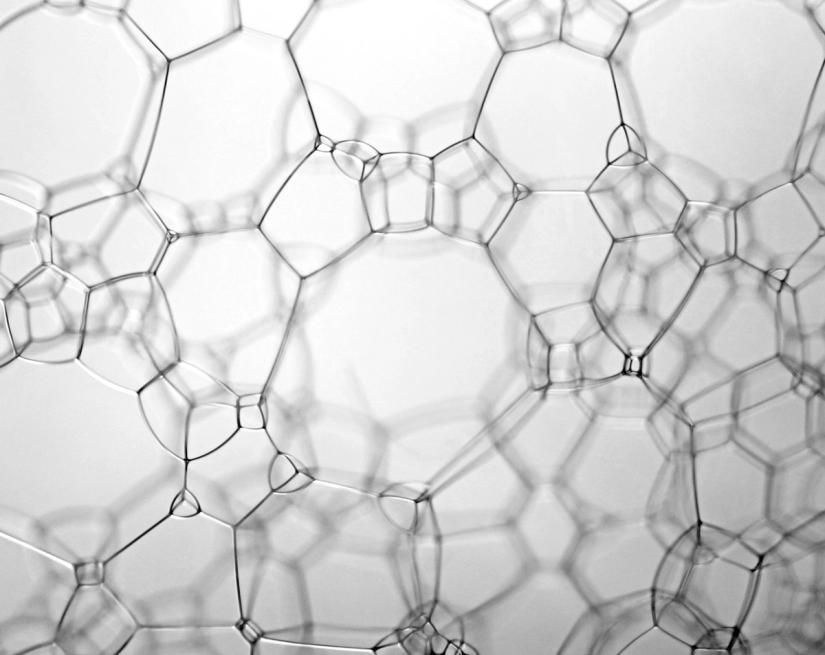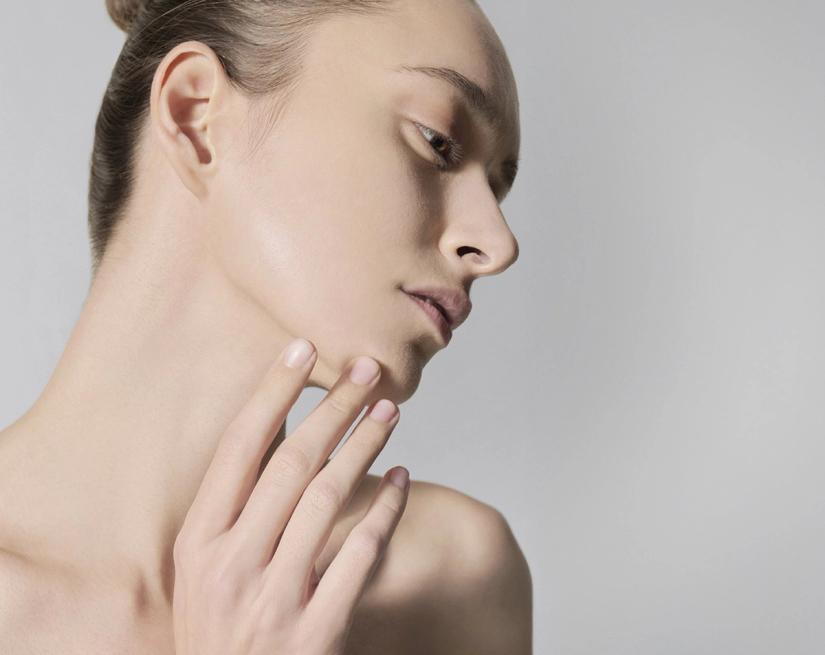skin care
Your Guide To Niacinamide & Vitamin C
Eve Mérinville | Corporate RD Excellence & SC RD and Innovation Director
10 min read

In the first years of life, our skin is naturally plump and perfectly hydrated without the need for extra support (except for maybe a little protective sunscreen). Unfortunately, as we get older, the body's natural processes begin to change, and we have to be proactive to avoid tired skin and maintain youthful-looking skin. So, how can you recapture that look naturally? We’ll teach you how to get plump skin.
There's a certain amount of science involved when it comes to building the perfect skincare routine. While it's a good idea to tread carefully when introducing new skincare ingredients into your daily routine to avoid breakouts and sensitive skin, there are two products that should be a staple for all skin types and feature in every skincare routine: vitamin C and niacinamide.
What’s So Good About Vitamin C and Niacinamide?
As far as superstar vitamins in your skincare routine go, vitamins A and C get all the attention for their brightening and anti-aging properties. Niacinamide, which is a form of vitamin B3, is often overlooked in skincare routines, but this vitamin has just as many skincare benefits as vitamins A and C, and dermatologists and facialists alike think everyone should be applying it to their faces.
Niacinamide (also known as nicotinic acid) is a relatively new ingredient on the skincare scene. It's a form of vitamin B-B3, to be specific. In the same vein as vitamin C, niacinamide is a powerhouse ingredient. It addresses the signs of aging by softening fine lines and reducing instances of hyperpigmentation and sallowness.
Niacinamide and vitamin C is an especially powerful combination. According to Elizabeth Nehme, board-certified esthetician and Comfort Zone Master Educator, "vitamin C booster is unique in many ways."
First, it's a lightweight, non-occlusive formula, so even someone with combination or oily skin will love the feel. Secondly, it's infused with our signature Longevity Complex, creating an even more potent antioxidant and anti-inflammatory formula. Follow your vitamin C booster with niacinamide to see glowing, even-toned skin and softened lines as it complements the brightening benefit of vitamin C. Find it in our alcohol-free toner for daily use and in a more intensive boost with our Hydramemory Hydra & Glow Ampoules.
What is Vitamin C?
There are many different forms of vitamin C, and it is the gold standard of skincare ingredients, especially as skin ages, for brightening up a dull complexion and erasing sunspots. Vitamin C is a powerful antioxidant and a natural collagen booster. It neutralizes free radical damage and protects the skin against UV light and other environmental aggressors. Additionally, vitamin C blocks abnormal production of pigmentation to even skin tone and fade dark spots. While it's best known for brightening, it can also be instrumental in skin firming.
Vitamin C works best in combination with vitamin E, ferulic Acid, vitamin B, and hyaluronic acid. Designed to deliver a high concentration of actives, a vitamin C serum is a popular choice in skincare. That being said, people with sensitive skin types might benefit from mixing their serum into a moisturizer or opting for a vitamin C-infused moisturizer for gentler delivery. To avoid skin irritation, take a gradual approach when adding vitamin C to your regimen. With any active ingredient, it's important to start slowly when incorporating new ingredients into your routine.
What is Niacinamide?
Niacinamide is a water-soluble vitamin, which is also known as nicotinic amide, the amide compound of Vitamin B3. Naturally occurring, it can be found in foods such as meats, nuts, and mushrooms. The benefits of niacinamide are many—for example, niacinamide has excellent skin-restoring properties and is also a popular skincare ingredient due to its ability to treat problem skin conditions with minimal side effects. Thanks to its anti-inflammatory action, it is particularly effective for conditions such as acne and hyperpigmentation and aids in repairing skin suffering from environmental aggressors.
Niacinamide can be taken in oral supplements to treat acne, as it reduces the inflammation associated with existing blemishes while also helping to prevent future breakouts. As a cell-communicating ingredient, it helps to stimulate microcirculation in the skin, improving skin tone and elasticity for a resurfacing effect. It is also a brilliant anti-aging ingredient since it is capable of increasing levels of fatty acids in the skin.
Myths About Using Niacinamide and Vitamin C Together
It was once thought that mixing niacinamide with vitamin C would create niacin, a yellow solution that can cause temporary flushing and tingling and can turn the skin yellow, rendering both ingredients ineffective.
More recent research has proved this is unlikely. While a combination of niacinamide and L-ascorbic acid (vitamin C) in certain conditions can form niacin, it takes a very high amount of heat over an extended period of time to cause this reaction. Even then, only a small amount of product will change.
The truth is, niacinamide and vitamin C are a potent combination for putting skin problems to rest. Together, the ingredients recharge and revamp the texture of your skin and shrink the size of your pores, boosting collagen turnover and delivering a youthful glow.
Scientific Studies on Vitamin C and Niacinamide
In a series of studies where 50 women who showed signs of aging were treated with a niacinamide cream, the results indicated that the women treated with niacinamide showed significantly more improvement in skin elasticity and appearance than women treated with a placebo. Studies also suggest that niacinamide skincare products can reduce the signs and symptoms of severe acne or rosacea by reducing the inflammation of the skin. Particularly if you have oily skin, niacinamide is equipped to regulate (and slow down) how much oil your skin produces. And when you have less oily skin, your pores appear smaller.
Vitamin C, or pure ascorbic acid, is a naturally occurring antioxidant that helps to protect the skin from UV damage as well as reduce hyperpigmentation and increase collagen production. Pair these two ingredients together and you have a dynamic duo for glowing skin. If you're wondering how to get glowing skin, adding vitamin C and niacinamide to your skincare routine is a must.
Potential Side Effects of Niacinamide and Vitamin C
Most people experience skin benefits from using niacinamide and vitamin C, but it's still a good idea to be careful when adding these ingredients to your skincare regimen. In some cases, niacinamide or vitamin C (individually or separately) can cause redness, inflammation, or skin irritation, particularly in people who already have sensitive skin or skin conditions.
Keep these tips in mind when adding these ingredients to your skincare routine:
- Do a patch test first. Apply a small amount of product to a small, unobtrusive area of skin to see if redness or irritation occurs.
- Start one new product at a time. This way, you'll know which ingredient is irritating your skin if redness or inflammation occurs.
- Go slow. Start with a couple applications of the product a week and work your way up to daily use.
Additional Skincare Ingredients You Need in Your Routine
Niacinamide and vitamin C are some of the most important ingredients in your skincare routine, but they're not the only ones. Here are some other powerful skincare ingredient combinations to pair for beautiful, healthy skin.
- SPF and Retinol
- Retinol and Ferulic Acid
- Vitamins A, C & E
- Hyaluronic Acid
- Moisturizer and SPF with Retinol/Retinoid, Salicylic or Glycolic Acids
SPF with Retinols
Sun Protection Factor, or SPF, protects your skin against harmful UVA and UVB rays. Since sun damage can occur even in short periods of sun exposure, it's a great idea to apply sunscreen every morning—it will become second nature before you know it.
Some skincare ingredients make your skin more sensitive to the sun, making SPF protection even more important. For example, if you happen to be using a natural retinol serum, using a daily SPF is imperative. Retinol enhances cell turnover, which makes your skin more prone to UV radiation. The retinoid effect lasts for days after application, so it's best to protect your skin daily and not just the day you've used retinol.
Additionally, if you're planning on spending some quality time outdoors, work in moisturizer and sun-specific makeup with SPF for added protection.

Retinol and Ferulic Acid
Ferulic Acid can be found in several foods and beverages, including coffee, oranges and apples. This acid is a plant-based antioxidant that enhances properties of other vitamins for sun damage protection and overall healthy skin. When you combine ferulic acid with a retinol, you create a unique delivery system that makes retinol even more effective. And while the retinol is working on firming the skin and adding radiance & luminosity (read Skin Detox for Bright, Healthy Skin), ferulic acid allows the retinol to absorb deeper into the skin, while promoting collagen production.
Vitamins A, C & E
Vitamin A helps to smooth lines and wrinkles, while increasing moisture and elasticity. Vitamin C minimizes imperfections in the skin, including uneven skin tone, hyperpigmentation, and the appearance of acne scars. Vitamin E defends against and disables free radicals made by the body. Adding these three vitamins into your skincare routine will prevent collagen breakdown.
Vitamin C and vitamin E are both important to apply topically every day in your skincare cocktail. Not only are they synergistic, but vitamin C is water soluble, while vitamin E is lipid soluble. Together, they penetrate into the different layers of the skin while neutralizing free radicals in their path.
| Vitamin | Benefits | Additional Notes |
| Vitamin A | Helps smooth lines and wrinkles, Increases moisture and elasticity | |
| Vitamin C | Minimizes imperfections in skin (e.g., uneven skin tone, hyperpigmentation, acne scars), Water-soluble (penetrates water-based skin layers), Neutralizes free radicals when paired with Vitamin E | Important to be applied topically every day in skincare routine, Synergistic with Vitamin E |
| Vitamin E | Defends against and disables free radicals, Lipid-soluble (penetrates oil-based skin layers) | Important to be applied topically every day in skincare routine, Synergistic with Vitamin C |
| Combined | Prevents collagen breakdown, Vitamin C and E together penetrate different layers of the skin and neutralize free radicals along the way |
Hyaluronic Acid
Hyaluronic Acid can significantly boost your hydration, leaving your skin hydrated, plump and glowing. Hyaluronic Acid allows the skin to retain water for a dewy, glowing look.
Moisturizer and SPF with Retinol/Retinoid, Salicylic or Glycolic Acids
If you're using a retinol/retinoid in your daily skincare routine, moisturizing is a must. Retinoids can be inherently irritating to the skin, and moisturizers help to calm and hydrate the skin to combat that effect. Similarly, if you're working with salicylic or glycolic acid, they need to be coupled with some sort of moisturizer to combat the drying effects that they can have on the skin.
A moisturizer like peptide cream is essential to any skincare routine, even if you're not mixing ingredients. If your skin is oily and acne-prone, use an oil-free moisturizer to add back hydration that could be stripped away.
Vitamin C and Niacinamide are Essential
Incorporating Vitamin C and Niacinamide can significantly improve your overall skin health and appearance. These ingredients are beneficial not only for increasing moisture, elasticity, and when preventing breakouts, but also when fighting dull skin. Creating a full, customized routine is essential for maintaining a glowing, radiant complexion - all year long.
Common Questions
- Can you mix niacinamide and vitamin C?
- Yes, mixing niacinamide and vitamin C is completely safe and highly beneficial for your skin. While there were previous misconceptions that they couldn’t be mixed due to the possibility of forming niacin, it has been proven that this reaction occurs only under extreme heat and unlikely conditions. Together, they form a powerful combination for brightening skin, reducing hyperpigmentation, and diminishing fine lines.
- Vitamin C and niacinamide: How do they work together?
- Vitamin C and niacinamide work synergistically to improve your skin's overall health. Vitamin C brightens the skin, neutralizes free radicals, and boosts collagen, while niacinamide soothes inflammation, softens fine lines, and reduces excess oil production. When used together, they recharge your skin, improve texture, brighten your complexion, and reduce signs of aging.
- Can niacinamide be used with vitamin C?
- Absolutely! Niacinamide can be used with vitamin C without concerns. Their combination enhances skin benefits—vitamin C works as a powerful antioxidant and brightening agent, while niacinamide strengthens the skin barrier, helps regulate oil production, and reduces redness. For optimal results, use them consecutively in your skincare routine, whether in separate products or combined formulas.


